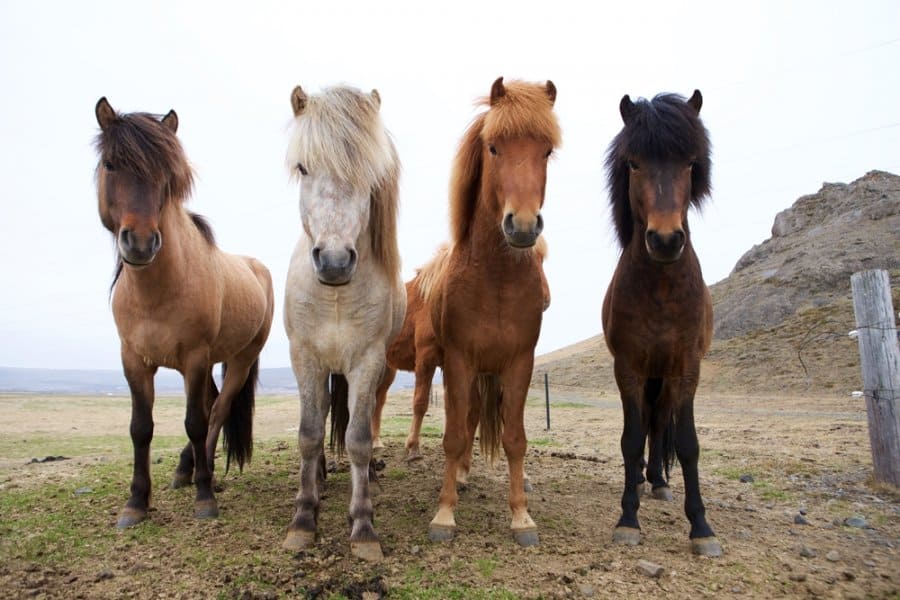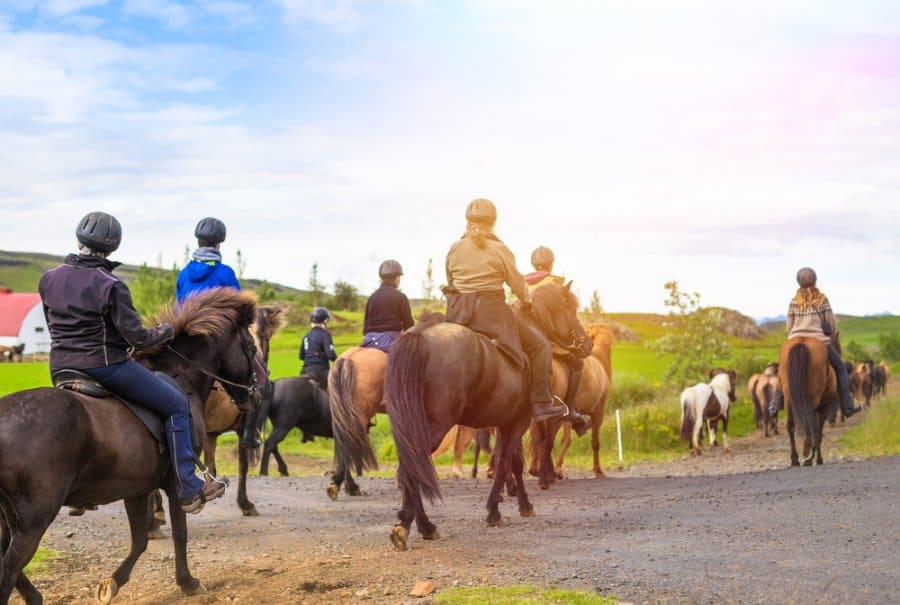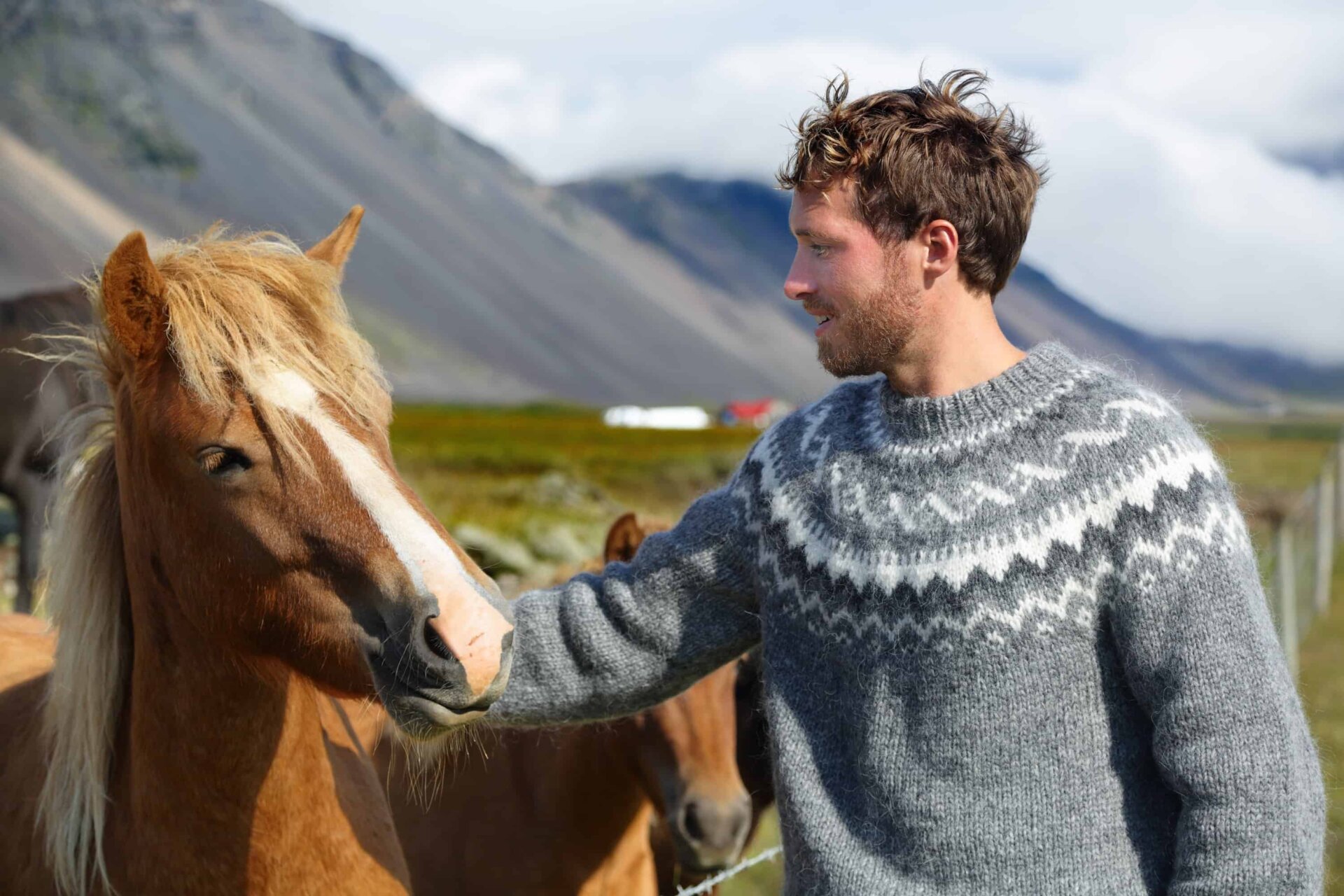Iceland is known for its stunning landscapes, geothermal pools, and Viking history, but one of its most beloved treasures is the Icelandic horse. Often mistaken for a pony, particularly an Icelandic pony, due to its size, the Icelandic horse is a strong, versatile breed that has played a crucial role in the island’s culture and history. Whether you’re visiting Iceland or simply curious about these majestic animals, understanding what makes them unique is essential.

Origins of the Icelandic Horse
The Icelandic horse has a long and storied history. Brought to Iceland by Norse settlers around the 9th century, these horses are descended from Scandinavian and possibly Celtic breeds. Over 1,000 years of isolation have shaped them into a breed unlike any other. Since no other horse breeds have been allowed to enter the island, the Icelandic horse remains one of the purest horse breeds in the world. This pure bloodline is part of what gives them their distinctive look and behavior.
Despite their smaller stature, Icelandic horses are horses, not ponies. However, their stocky build and compact size often lead to them being referred to as Icelandic ponies. In reality, their strength, endurance, and stamina are comparable to larger horse breeds, making them incredibly versatile for work, leisure, and sport.

Icelandic Horse Characteristics
One of the most distinctive Icelandic horse characteristics is its unique gaits. While most horses have three gaits (walk, trot, and canter), the Icelandic horse has five. In addition to the common gaits, they can perform the tölt and the pace.
- The tölt is a four-beat lateral gait that provides a smooth, comfortable ride for the rider. It is a natural gait for Icelandic horses and one of their most prized traits.
- The pace is a two-beat lateral gait that allows the horse to move quickly over short distances, often referred to as “flying pace.”
These unique gaits are what make the Icelandic horse stand out among other breeds. Their ability to tölt makes them especially favored for long rides over rugged Icelandic terrain.

Temperament of the Icelandic Horse
The Icelandic horse temperament is another reason why this breed is so well-loved. They are known for being friendly, curious, and intelligent. Their gentle nature makes them ideal for beginner riders, yet they are spirited enough for experienced riders to enjoy. Their ability to adapt to harsh Icelandic conditions has made them hardy and resilient.
Despite their friendly disposition, Icelandic horses are independent and have a strong sense of self-preservation. This can be traced back to their origins, as they evolved in an environment with few natural predators but harsh weather conditions.
What Are Icelandic Horses Used For?
Historically, Icelandic horses have been used as workhorses, transporting people and goods across the rugged Icelandic landscape. Today, what are Icelandic horses used for? Primarily for leisure, sport, and breeding. In Iceland, riding an Icelandic horse is a popular tourist activity, with many visitors eager to experience their unique gaits firsthand. The breed is also popular in international competitions, where riders showcase the horse’s tölt and pace.
Additionally, some Icelandic horses are bred for their meat, though this practice is far less common today than it was in the past. For many, the idea of eating horse meat might seem strange, but do they eat horse in Iceland? Yes, it remains part of the Icelandic tradition.
The Icelandic Horse vs. Normal Horse
When comparing the Icelandic horse vs. normal horse, several differences stand out. First, their size is noticeably smaller, often leading people to refer to them as Icelandic ponies or Icelandic ponies, but despite their size, they are incredibly strong and resilient, with the ability to carry adults over long distances.
Another major difference lies in their gaits. The Icelandic horse’s tölt and pace are unique to the breed, making them highly sought after by riders. Additionally, Icelandic horses are renowned for their longevity and health. How long do Icelandic horses live? Typically, they can live well into their late twenties or even thirties, much longer than the average lifespan of other horse breeds.
Cultural Significance of the Icelandic Horse
In Icelandic culture, horses hold a special place. They are considered symbols of strength and freedom, having been an integral part of the country’s survival for centuries. The Icelandic horse is also featured prominently in Icelandic sagas, highlighting its importance throughout history. Today, horses in Iceland are a source of national pride, and every year, festivals celebrate their beauty, agility, and historical significance.
Icelanders have a deep connection with their Icelandic horses, and their role in shaping the country’s culture cannot be overstated. This connection is reflected in the strict laws surrounding the breed. For instance, once an Icelandic horse leaves the island, it is never allowed to return. This is to preserve the purity of the breed and to protect the island from diseases.
Icelandic Horses in the Modern World
Icelandic horses have gained international recognition, with many being exported to countries like the United States, Germany, and the United Kingdom. These horses continue to participate in international competitions and have become popular with riders who appreciate their unique characteristics and smooth ride.
In Iceland, you can still find wild Icelandic horses, though they are not truly wild in the sense that they roam free without human interaction. Instead, they live in herds on large farms and are rounded up seasonally. Wild horses in Iceland are a captivating sight for visitors.
If you’re planning a trip to Iceland, taking the opportunity to ride Icelandic horses is a must-do experience. Riding Icelandic horses allows you to experience the breathtaking scenery of Iceland from a new perspective. You can often book tours that take you through lava fields, along black sand beaches, or across scenic valleys.
Frequently Asked Questions
What’s so special about Icelandic horses?
Icelandic horses are known for their unique gaits, particularly the tölt, which provides an exceptionally smooth ride. Their friendly temperament, resilience, and long lifespan also set them apart from other breeds.
Why can’t Icelandic horses go back to Iceland?
Once an Icelandic horse leaves the country, it is never allowed to return. This strict rule helps to protect the breed from foreign diseases and maintain the purity of the breed, which has been isolated for over 1,000 years.
What is the difference between Icelandic horses and regular horses?
Icelandic horses are smaller, often mistaken for ponies, but are incredibly strong and hardy. They also have unique gaits, like the tölt and the pace, which most other horse breeds do not possess.
Are there any Icelandic horses in the US?
Yes, there are many Icelandic horses in the US. These horses are imported for breeding, riding, and competition purposes and are beloved by equestrians for their smooth gaits and friendly temperament.
For visitors interested in exploring more of what Iceland has to offer, check out our guide on the things to do in Reykjavik. Additionally, if you’re planning a road trip across Iceland, take a look at what is the best car rental company in Iceland to make the most of your journey.
the best car rentals in Iceland to make the most of your journey.
The Icelandic horse is not just a breed, but a symbol of Iceland’s rich heritage. Whether you’re drawn to their unique gaits, their gentle temperament, or their connection to Icelandic history, these horses are truly a treasure of the land of fire and ice.




